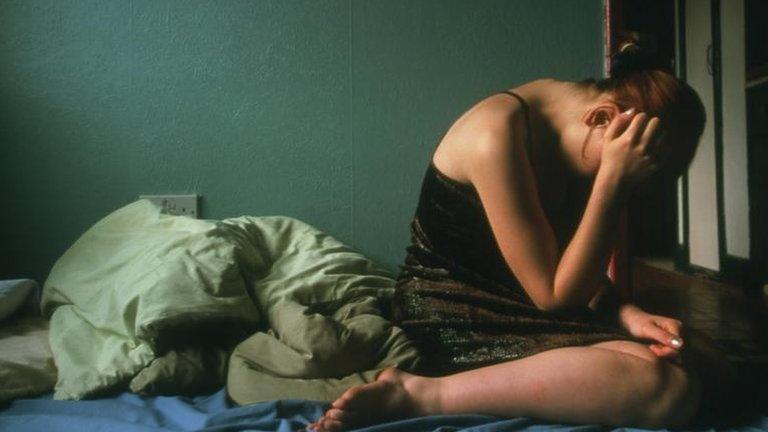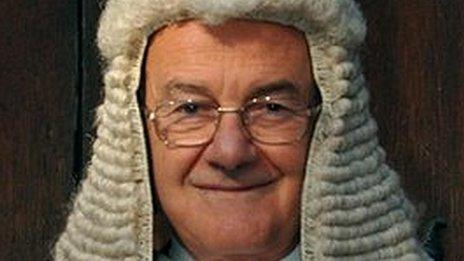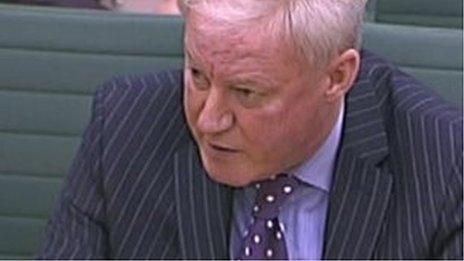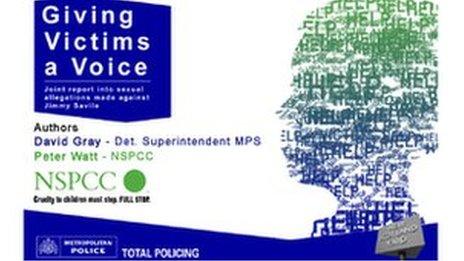Fresh sex offences guidance published
- Published
Jill Saward, who was gang raped in 1986, says her attackers got the same sentence as for aggravated burglary
Sex offenders found to have abused their position of power could face longer jail terms under new guidelines due out next year in England and Wales.
A shake-up of the decade-old sentencing guidance means the sentences served will reflect the offender's behaviour and motivation to a greater degree.
Other factors considered by judges might be grooming activity, lies about ages and whether the offence is filmed.
The guidelines also extend the starting point for rape sentences to 15 years.
Under the previous guidance, this starting point was only allowed in cases of multiple rapes.
Webcams
The new guidelines, created by the Sentencing Council, cover more than 50 offences including rape, child sex offences, indecent images of children, trafficking and voyeurism.
One aim is to focus on the psychological, as much as the physical, effect on the victim, the council says.
In cases of indecent images, it moves the judge away from concentrating on the number of images and puts an emphasis on whether the offender has possessed, distributed or created them.
The guidelines also cover the changes that have come with technological advances such as the filming of offences, sexual activity with a child committed via a webcam and offenders asking children to share indecent photos of themselves.
They also remove a child sex offence, which was previously labelled as involving "ostensible consent".
The Sentencing Council said it felt this was the wrong way to look at these offences as "children do not consent to their own abuse".
Revelations about disgraced late TV presenter and DJ Jimmy Savile saw high numbers of sex attack victims come forward.
Separately, questions were raised about social care and attitudes to victims after cases involving grooming gangs in Rochdale and Oxford.
The new guidelines were drawn up by the council following research with victims and judges, and a public consultation.
Lord Justice Treacy: Sex offences guidance "sends out strong message"
Lord Justice Treacy, the council's chairman, said the guidelines would "make real changes to the way offenders are sentenced for these very serious, sensitive and complex offences".
"This approach will enable sentences that reflect what the victim has been through and take in a full profile of what the offender has done, such as grooming victims or abusing trust," he added.
"No-one wants more people falling victim to offenders who come before the courts, and public protection is central to this guideline, whether this is by jailing offenders or, where appropriate, imposing a rigorous treatment order and other restrictions to prevent reoffending."
Lord Justice Treacy said it was just a coincidence that the Savile and Stuart Hall cases had occurred during their two years of work on the guidelines - and said they were not just targeting the rich and famous.
"These proposals will apply to teachers, they will apply to care workers, they will apply to anybody who is in a position of responsibility for, particularly, a young person and then takes advantage of them," he said.
The proposals were welcomed by Jill Saward, who was raped and battered in 1986 at her Ealing vicarage home by two men while her father and boyfriend were tied up.
She has campaigned for changes to the way rape victims are treated and said the measures would make a "big difference to victims".
She told BBC Breakfast: "For so long we have felt left out of the system. It will help to feel that the courts have a better understanding of what you've gone through."
Ms Saward pointed to her case, in which the judge, Mr Justice Leonard, remarked that the trauma she suffered "was not so very great".
"They were sentenced to the same for buggery and rape and indecent assault as they were for burglary," she said. "I don't really know how the two things were equatable."
'Long waiting lists'
Juliet Lyon, director of the Prison Reform Trust, welcomed the new guidelines but warned of long waiting lists for sex offence treatment programmes in prisons.
She also said there were no treatment programmes addressing internet-based offending which was a challenge for indeterminate sentenced prisoners who had to satisfy the parole board that they were no longer a risk.
Alison Worsley, of the children's charity Barnardo's, said it was "plain wrong" to imply in any way that the experiences of sexually-exploited children were something they "bring on themselves".
"If we are to turn the tide in the fight against these awful crimes, it is vital that victims feel they will be taken seriously and dealt with sensitively at all levels of the justice system," she said.
Victims' commissioner Baroness Newlove, whose husband Garry was killed by a gang vandalising his car, said: "Victims need to be put first and not feel like they are a case file rather than a person.
"There is still more to do - victims of such disturbing crimes as these need support long after the verdict is in. The system needs to fit around them and not the other way around," she added.
- Published10 December 2013

- Published27 August 2013

- Published7 August 2013

- Published8 January 2013

- Published11 January 2013

- Published21 November 2012

- Published3 July 2012
